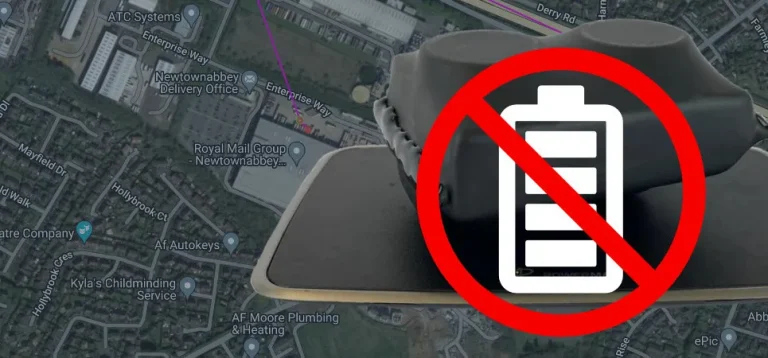Find a GPS Tracker on Your Car: Expert Tips and Methods
How to find out if your vehicle is being tracked by GPS.
Are you suspecting someone is tracking your car? It’s a common worry. GPS vehicle tracking devices are more popular than ever. But not always for good reasons. It could be a jealous spouse. Maybe an employer checking mileage. This guide from Titan Private Investigation Agency will help. You’ll learn to find a GPS tracking device in your car. We’ll cover tracker types and search methods.
This guide will give you the knowledge to take control. You will learn where trackers could be placed. Plus, the ways private investigators find them. You can search for yourself or get professional help. Let’s protect your privacy and security.
Understanding GPS Vehicle Tracking Devices
GPS vehicle trackers come in different forms. Each has its own way of working. Knowing these types helps with your search. It gives you a better understanding of what to look for.
Transmitting Trackers
These are the most common ones. They send out a signal. Usually, they stick to your car with a magnet. This makes them easy to attach and remove. These devices transmit location data in real-time to a smartphone or computer, allowing someone to track your movements as they happen. The magnetic attachment means they can be placed quickly and discreetly, often during brief stops at shops or restaurants.
Modern transmitting trackers can be remarkably small—some no larger than a matchbox—making them difficult to spot during a casual inspection. They typically require batteries, though advanced models may last for weeks or even months on a single charge.
OBD Port Trackers
Your car has an OBD port. It’s usually under the dash. These trackers plug right into that port. This is an easy install. They get power from the car itself. You can Google the location of your car’s OBD port.
The OBD (On-Board Diagnostics) port was originally designed for mechanics to diagnose vehicle issues, but it has become a convenient access point for trackers. These devices are particularly favoured by fleet managers and insurance companies because they can collect not just location data but also driving behaviour metrics such as speed, harsh braking, and rapid acceleration.
What makes these trackers particularly concerning is their inconspicuous nature—they look like a legitimate part of your vehicle’s diagnostic system and draw power directly from your car, eliminating the need for batteries.
Hardwired Trackers
These trackers connect to your car’s power system. They’re wired in for a constant power supply. This means they can work for a long time. Finding them can be trickier.
Professional installations of hardwired trackers are often performed by automotive specialists or security firms. These devices may be integrated into your vehicle’s electrical system, hidden behind dashboards, under seats, or within the engine compartment. Their connection to the vehicle’s power supply means they can operate indefinitely without requiring battery changes.
These sophisticated devices often include additional features such as geofencing (alerting when the vehicle leaves a predetermined area), remote immobilisation capabilities, and detailed journey logging. Their professional installation makes them particularly difficult for the average person to detect.
Passive Trackers
These are older. They don’t send data in real-time. The data is downloaded later. These won’t show up on a bug sweep.
While less common today, passive trackers still have their uses. They record the vehicle’s movements, storing the information internally rather than transmitting it. The person tracking you would need to physically retrieve the device to access the data.
The advantage of passive trackers for someone conducting surveillance is that they emit no signals that could be detected by counter-surveillance equipment. They’re typically smaller than transmitting trackers because they don’t need transmission components, making them even more difficult to locate during a visual inspection.

Identifying Who Might Be Tracking Your Vehicle
Why would someone track your car? There are several reasons to think about. It helps to know the motive. This can guide your search.
Matrimonial Investigations
Are you going through a divorce? A spouse might track you. They could be gathering proof of a cheating partner. This is a common reason for using trackers.
In contentious divorce proceedings, evidence of infidelity or hidden assets can significantly impact settlements. A suspicious spouse might employ tracking technology to document visits to unknown residences, hotels, or locations that contradict stated whereabouts.
It’s worth noting that in the UK, while it’s generally legal to install a tracker on a vehicle you own, tracking a spouse without their knowledge may violate privacy laws and could potentially be considered harassment under the Protection from Harassment Act 1997. Courts typically take a dim view of evidence obtained through such means.
Employee Monitoring
Does your job involve a company car? Your employer might be tracking it. They could be checking expenses or work habits. They need to tell you if they do.
Under UK law, employers must inform employees if vehicles are being tracked. This should be clearly stated in company policies or employment contracts. Legitimate business reasons for tracking include optimising routes, verifying working hours, ensuring compliance with driving regulations, and protecting valuable assets.
However, some employers may overstep these boundaries, using tracking data to monitor lunch breaks, personal errands, or off-duty activities. If you suspect unauthorised tracking, review your employment documentation carefully and consider consulting with an employment solicitor if necessary.
Advanced Surveillance Techniques
Sometimes trackers are for surveillance. A subject might be very aware. Normal surveillance could be obvious. Trackers let investigators stay far away until needed.
Professional investigators use GPS tracking as part of a comprehensive surveillance strategy. Rather than maintaining constant visual contact—which risks detection—they can monitor movements remotely and only move into position when the target reaches a location of interest.
This technique is particularly effective for subjects who are security-conscious or who regularly employ counter-surveillance measures such as taking unusual routes or making sudden turns to identify potential followers.
Where to Look for GPS Trackers on Your Vehicle
Trackers can be hidden in many places. Check both inside and outside your car. Be thorough in your search.
Exterior Vehicle Search
Start by checking under the car. Look in the wheel wells. Check bumpers and the fuel tank area. Feel for anything stuck with magnets. Use your fingers to search carefully.
The undercarriage of your vehicle offers numerous attachment points for magnetic trackers. Pay particular attention to the frame rails, exhaust system brackets, and any flat metal surfaces. A mechanic’s mirror and torch can be invaluable tools for inspecting these hard-to-see areas.
The rear bumper is another common location, as it provides easy access for someone quickly placing a device. Check inside the bumper cavity and around any plastic trim pieces that might conceal a device. The area around the fuel tank is also worth examining carefully, as it typically offers large, flat surfaces ideal for magnetic attachment.
Interior Vehicle Search
Now, check inside. Look under the seats. Check the glove compartment and center console. Don’t forget the trunk, including the spare tire area. Look for loose wires or odd devices.
Modern trackers can be disguised as ordinary objects or hidden within the vehicle’s existing components. Examine any unfamiliar devices, even those that appear to be legitimate car accessories. Pay special attention to areas around the dashboard, as some trackers may be designed to blend in with factory-installed electronics.
The space beneath seats offers excellent concealment opportunities. Remove any floor mats and thoroughly inspect the carpet and seat mounting brackets. The boot area, particularly around the spare tyre well and in storage compartments, should be carefully examined as these areas are easily accessible but rarely observed by the driver.
Engine Compartment Search
Open the hood. Look around the engine. See if anything looks out of place. Hardwired trackers might be here.
The engine compartment provides numerous hiding spots and access to the vehicle’s electrical system. Hardwired trackers may be connected to the battery or fuse box, so examine these areas carefully for any unfamiliar wiring or devices.
Be particularly vigilant about components that appear newer than surrounding parts or wires that don’t follow the same routing patterns as factory wiring. Professional installations may be difficult to distinguish from original equipment, so look for subtle differences in wire colour, connector types, or mounting methods.
How to Conduct a GPS Tracker Search
Follow these steps for a complete search. Be patient and detail-oriented. The more thorough you are, the better.
The Fingertip Search Method
Feel around every possible hiding spot. Use your fingertips. Be systematic. Check every inch.
This tactile approach is often more effective than visual inspection alone. Wear gloves to protect your hands and improve sensitivity. Move methodically from one section of the vehicle to another, ensuring no area is overlooked.
Pay particular attention to edges, seams, and junctions where components meet, as these provide natural concealment opportunities. Remember that modern trackers can be extremely small, so even slight irregularities in surface texture could indicate the presence of a device.
Using a GPS Locator/Bug Detector
These devices can find trackers. They scan for signals. You might need to “wake up” the tracker. Rocking the car can do this.
RF (radio frequency) detectors can identify active transmissions from GPS trackers. However, be aware that many modern trackers transmit data intermittently to conserve battery life, so a single scan may not detect them. Some trackers only activate when the vehicle is in motion, which is why physically moving or rocking the car during scanning can be effective.
More sophisticated counter-surveillance equipment can detect the electronic signatures of dormant devices, but these tools are typically expensive and require training to use effectively. For the average person, a mid-range RF detector combined with a thorough physical inspection offers the best balance of effectiveness and practicality.
Professional Vehicle Bug Sweeps
You can hire a pro. Private investigators are experienced. They have special tools. They know where to look.
Professional sweeps employ multiple detection methods simultaneously. These typically include RF scanning, physical inspection, thermal imaging to detect heat signatures from active electronics, and non-linear junction detectors that can find electronic components even when powered off.
At Titan Private Investigation, our specialists are trained to identify even the most sophisticated tracking devices. We maintain current knowledge of the latest tracking technologies and concealment methods, ensuring our sweeps remain effective against emerging threats.
Benefits of Hiring a Private Investigator
They have experience. They use specialized equipment. They are very thorough. Plus, they understand the legal issues.
Professional investigators bring a wealth of experience to the task. Having conducted hundreds of sweeps, they recognise patterns in device placement and can quickly identify anomalies that might escape notice during a DIY inspection.
Beyond detection, investigators can provide valuable context about the legal implications of finding a tracker. They can advise on evidence preservation, documentation procedures, and appropriate next steps based on your specific situation. This guidance can be particularly valuable if you intend to pursue legal action against the person responsible for the tracking.
Cost of a Professional Bug Sweep
Bug sweeps usually cost around £240. It’s a good investment for peace of mind.
While this may seem like a significant expense, consider the alternatives. The ongoing invasion of privacy from undetected tracking can have serious psychological impacts, creating persistent anxiety and undermining your sense of security. For many clients, the certainty provided by a professional sweep is well worth the investment.
At Titan Private Investigation, we offer transparent pricing with no hidden fees. Our comprehensive service includes a detailed report of findings and recommendations for preventing future tracking attempts. We also provide ongoing support should you have questions after the sweep is completed.
Alternative: Mechanic Inspection
Need a cheaper option? Ask a mechanic. Have them check for foreign objects. Tell them you think there might be a tracker.
Many mechanics are familiar with vehicle electronics and can identify components that don’t belong. When requesting this service, be specific about your concerns and ask them to pay special attention to areas where trackers are commonly placed.
While mechanics may not have specialised detection equipment, their intimate knowledge of vehicle construction and components makes them well-positioned to notice irregularities. This option provides a reasonable middle ground between a DIY search and a professional sweep.
GPS Vehicle Tracking Devices: Conclusion
Finding a GPS tracker on your car can be scary. You can take control with some knowledge. You’ve learned about tracker types, motives, and search methods. Now you can check your car well. Use both manual searches and electronic tools. If unsure, get help from a pro or mechanic. Your privacy is worth it.
At Titan Private Investigation, we’re committed to helping you protect your privacy and security. Our experienced team provides discreet, professional services tailored to your specific situation. Whether you need a comprehensive bug sweep, advice on privacy protection, or assistance with other security concerns, we’re here to help. Contact us today on 01332 504256 for a confidential consultation. Your peace of mind is our priority.
For further advice and information in regard to London corporate investigations, please feel free to speak to one of our case handlers and advisors in complete confidence by email, telephone or at one of our offices nearest you.
London GPS Vehicle Tracking – Call Titan Investigations London Office 020 39046622
Birmingham GPS Vehicle Tracking – Call Titan Investigations Birmingham Office 0121 7162442
Cambridge GPS Vehicle Tracking – Call Titan Investigations Cambridge Office 01223 662022
Derby GPS Vehicle Tracking – Call Titan Investigations Derby (Head Office) 01332 504256
Leeds GPS Vehicle Tracking – Call Titan Investigations Leeds Office 0113 4574066
Leicester GPS Vehicle Tracking – Call Titan Investigations Leicester Office 0116 2436520
Nottingham GPS Vehicle Tracking – Call Titan Investigations Nottingham Office 0115 9646950
Manchester GPS Vehicle Tracking – Call Titan Investigations Office 0161 3023008
Sheffield GPS Vehicle Tracking – Call Titan Investigations Sheffield Office 0114 3499400
Truro GPS Vehicle Tracking – Call Titan Investigations Truro Office 01872 888706
Alternatively, you can contact us directly using our fully confidential contact form at enquiries@titaninvestigations.co.uk or chat directly using our Live Chat facility, and one of our private investigations team will get right back to you.













